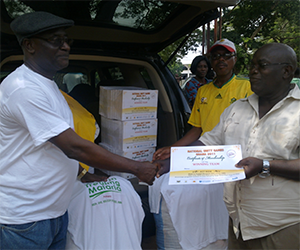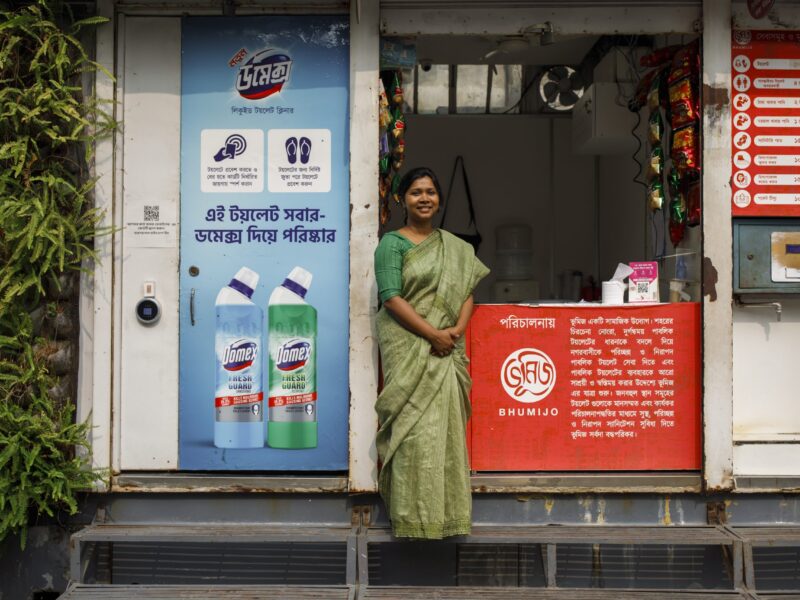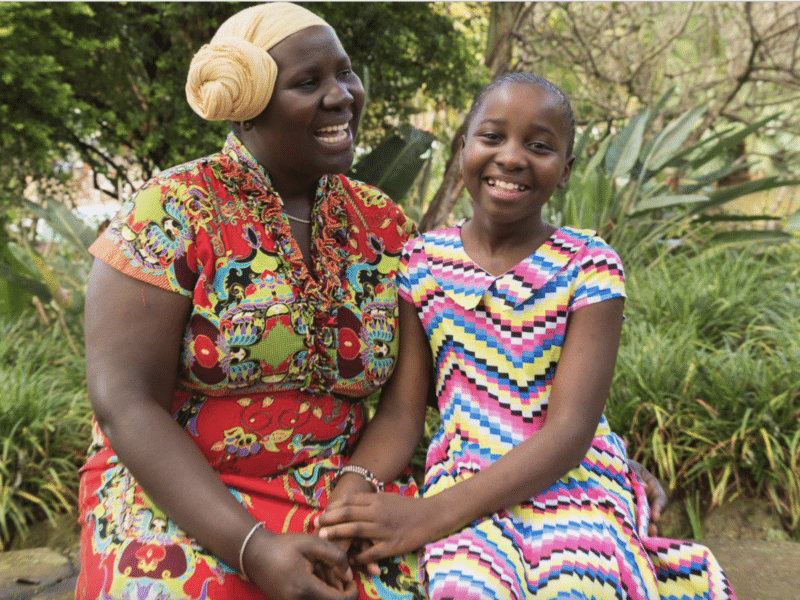For years the National Unity Games have provided Ghana’s preeminent young athletes an ideal setting for competition, fraternity and cultural celebration. The annual ten-day event now also raises support for malaria control, thanks to an effort by the United Against Malaria partnership, the National Sports Authority and the National Malaria Control Program to turn 5,000 sportsmen and women and their officials into malaria control advocates.
At a special ceremony broadcast nationwide in July, the National Sports Authority joined Emmanuel Fiagbey, Country Director of the Voices for a Malaria-Free Future project of the Johns Hopkins Bloomberg School of Public Health Center for Communication Programs (JHU•CCP), a founding partner of UAM, in signing and distributing commemorative certificates bearing the UAM Logo to the almost 5,000 participants and officials of the 2011 National Unity Games. The certificates bore this message:
“Be a member of the Winning Team.
Sleep in treated mosquito nets every night.
Take only ACTs any time you have malaria.
Encourage pregnant women in your house to seek antenatal care on time.
Keep Ghana malaria-free for the next games.”
Additionally, 600 “Winning Team” T-shirts were distributed to all first, second and third place winners at the Games.
The move draws on UAM’s successful efforts to leverage the popularity of soccer to share prevention and treatment messages via influential spokespersons and channels. UAM’s public service announcements featuring the Black Stars, the national soccer team, reached an estimated 70 percent of the population during the 2010 FIFA World Cup. These PSAs were later distributed by the NMCP to 400 health facilities, where they are broadcast in patient waiting rooms. The experience using soccer as a platform, as well as the National Unity Games effort, pave the way for a broader malaria initiative that targets athletes and fans of 20 different sports.
In Ghana, malaria has had a devastating impact at all levels of society. Despite advances, malaria is still the leading cause of illness, accounting for 3 million annual cases and some 3,000 deaths in 2010, according to NMCP data.
In response, the National Sports Authority has amplified its role in the fight against malaria, teaming with UAM to install malaria messaging in its stadia and offices linked with 34 different sporting associations, from soccer to table tennis to taekwondo. Its director, Worlanyo Agra, told reporters last week that the National Sports Authority will “remain active members of the United Against Malaria partnership and continue to ensure that sporting activities at all levels, national, regional, district and at the community levels are used as grounds for educating our people on malaria prevention and correct treatment of the disease.”
Mr. Fiagbey noted that Ghana’s athletes are seen as role models who can positively influence society to engage in healthy behaviors. Like many team sports, the fight against malaria requires collective effort. The sports community is now primed to help lead those efforts, joined by governments, businesses, non-governmental organizations and civil society and other malaria advocates.
JHU∙CCP’s efforts through the United Against Malaria partnership is being led by the Voices for a Malaria-Free Future advocacy project. Learn more about the Voices project and the United Against Malaria partnership.





